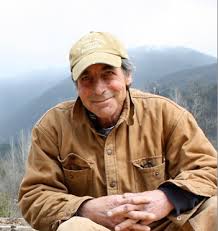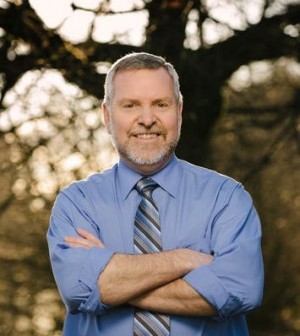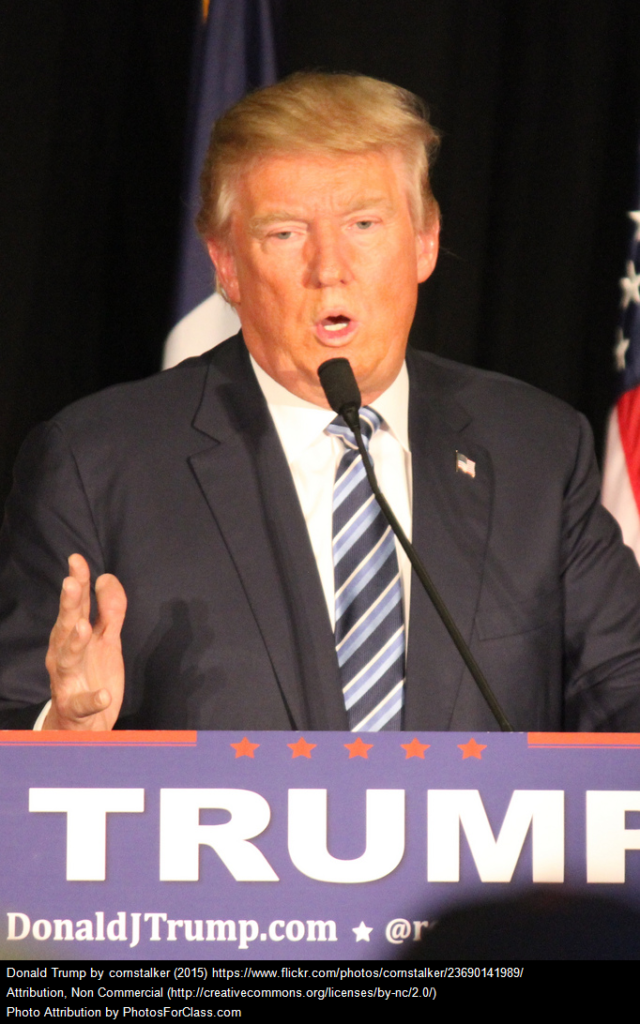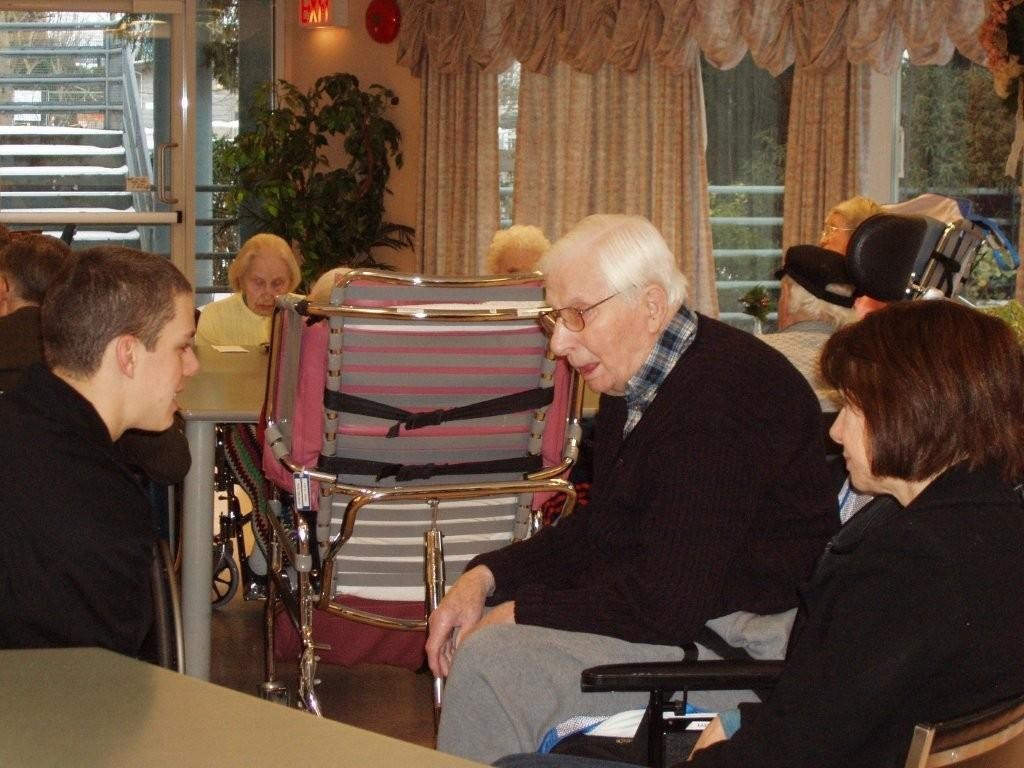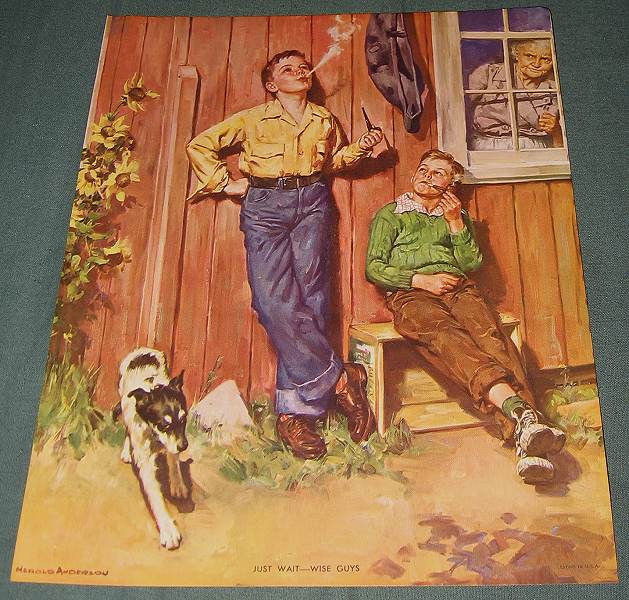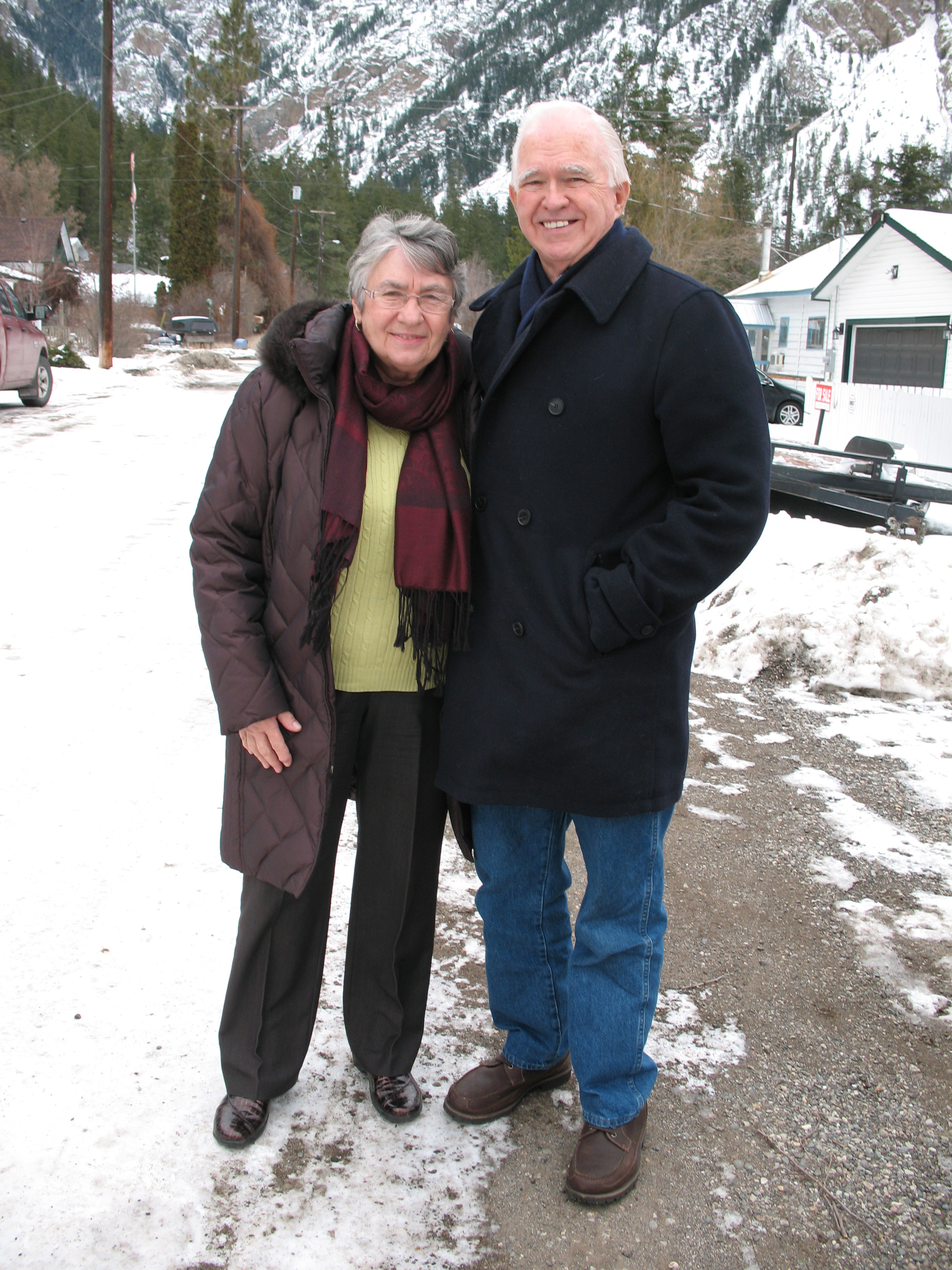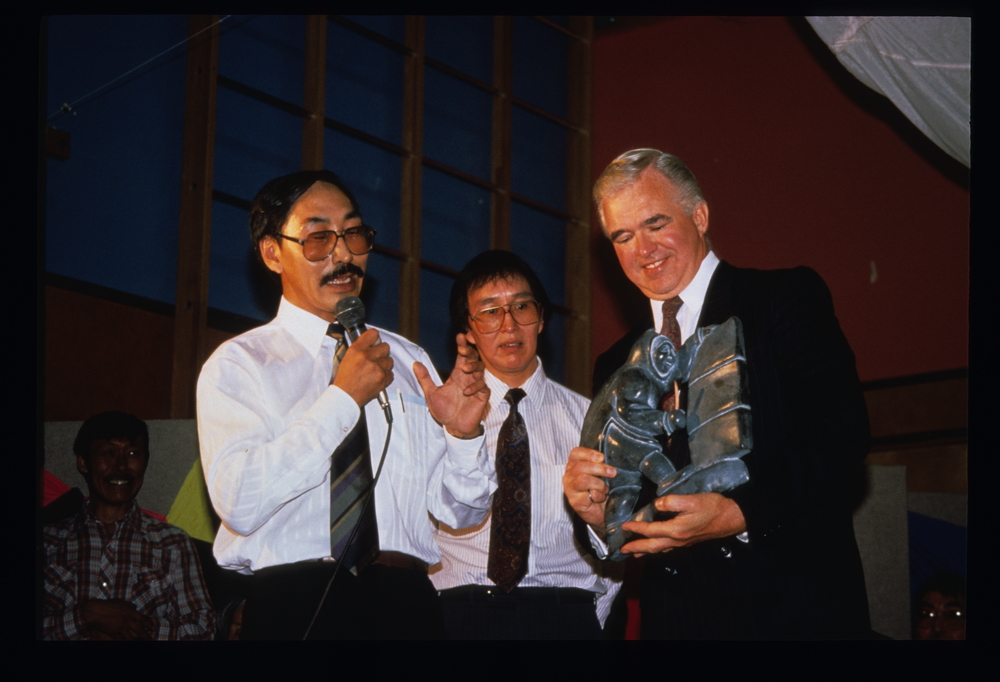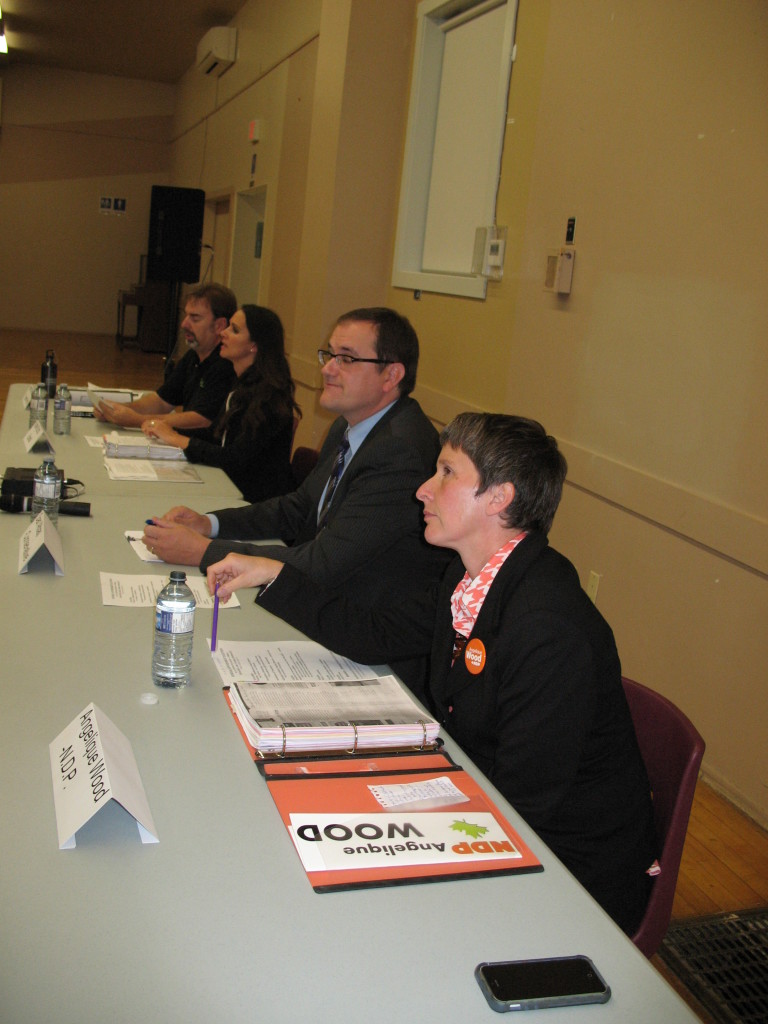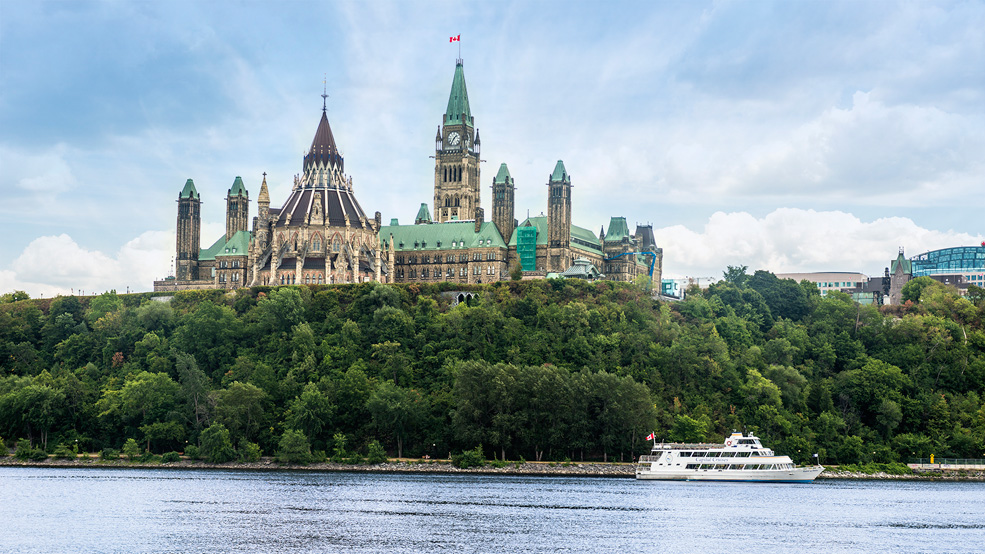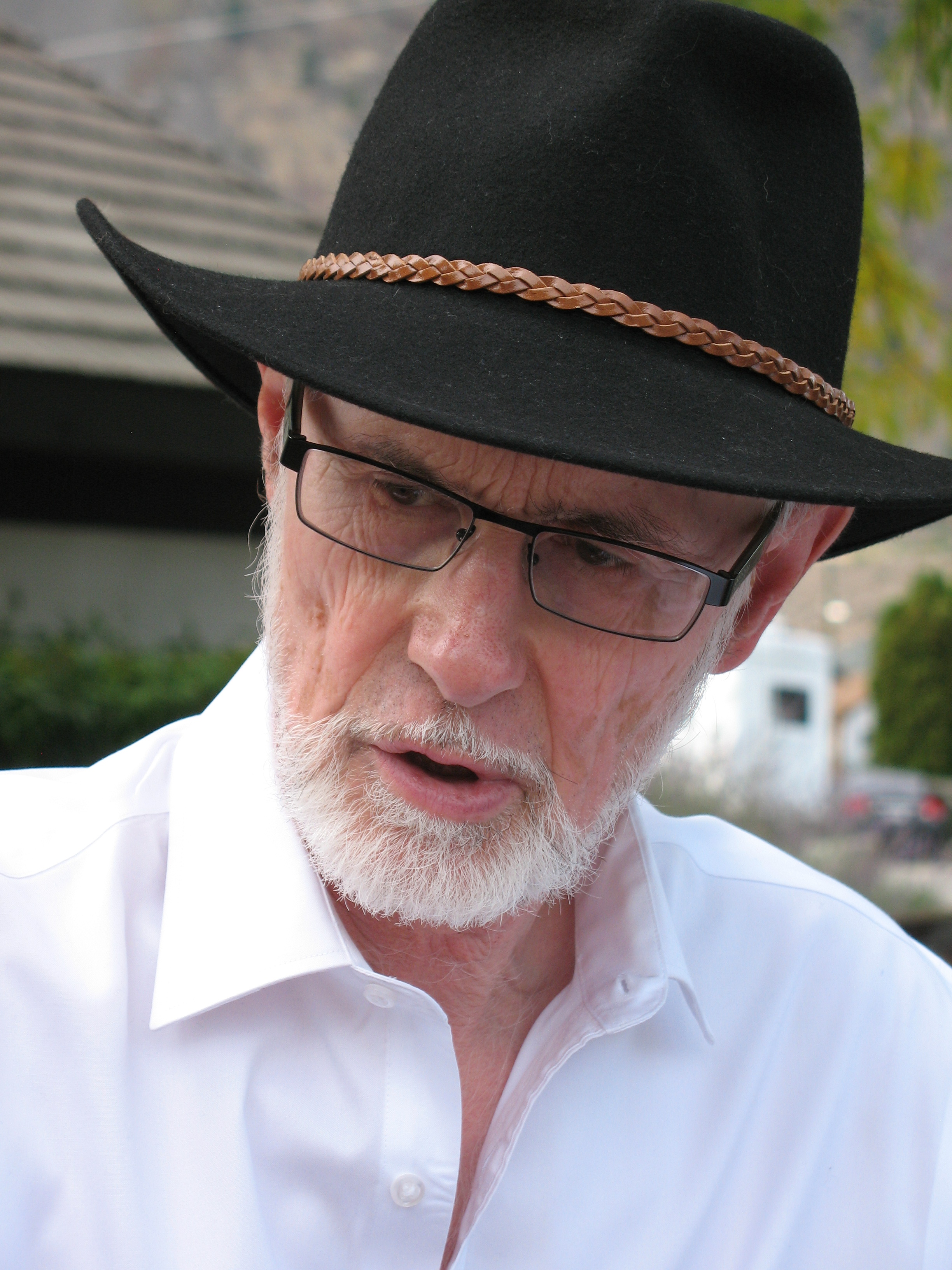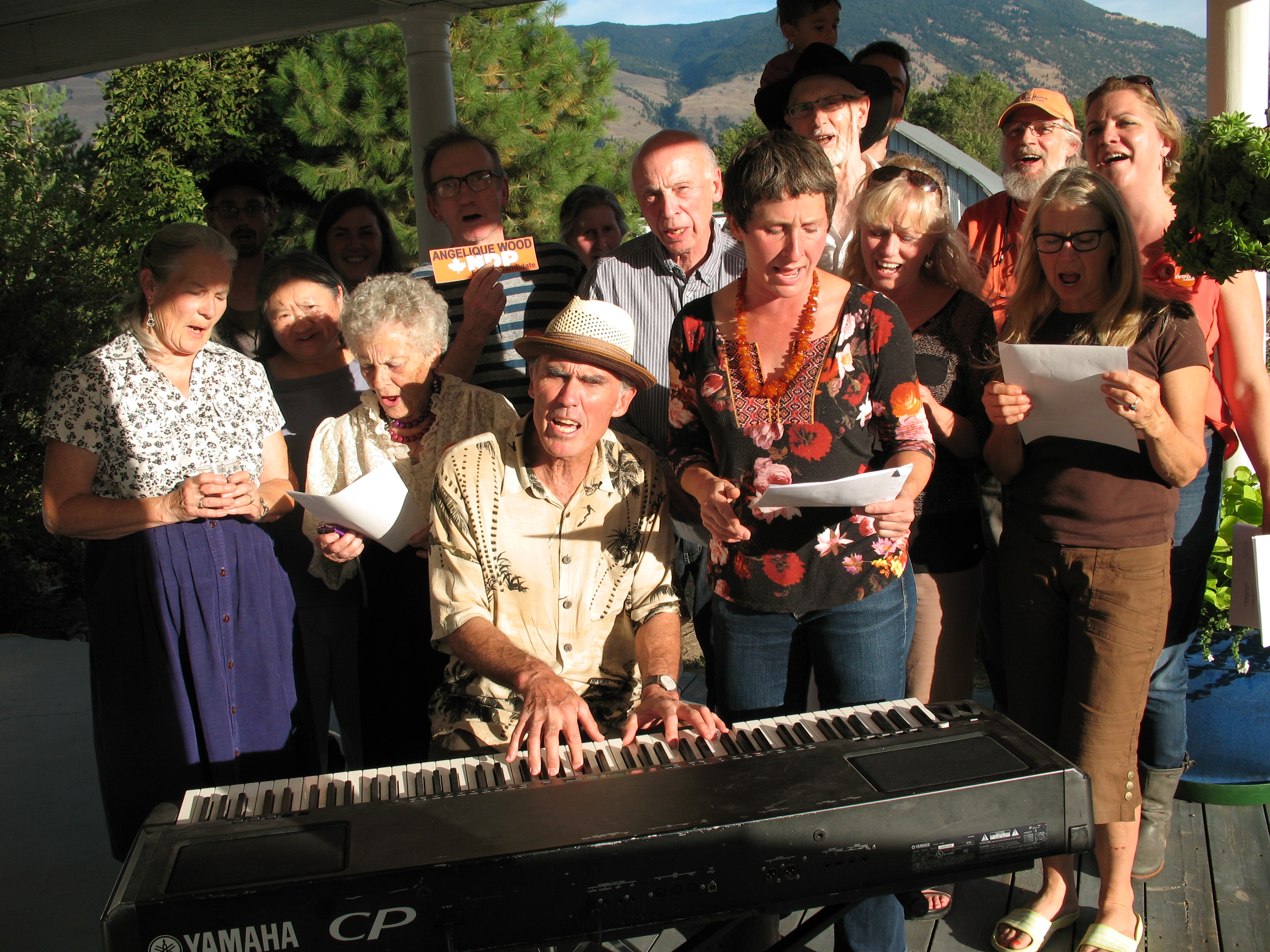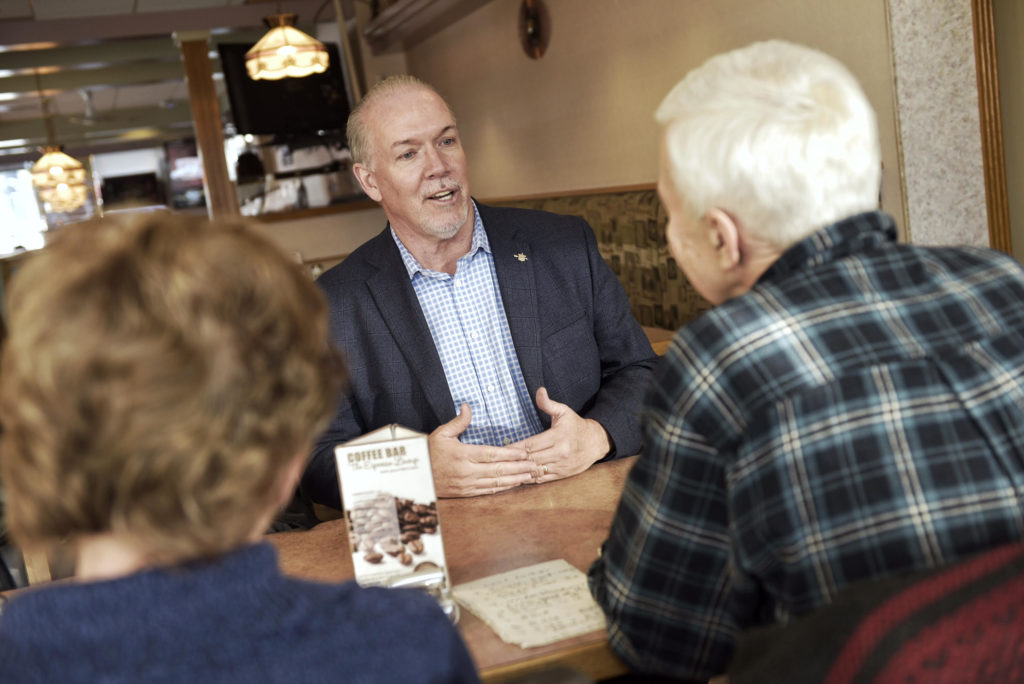
Photo by Josh Berson
When I called the provincial NDP office in early December to request an interview with party leader John Horgan, I considered it a “long shot.” With a provincial election looming, would he want to talk with a small market columnist? I suggested to his effervescent press secretary, Sheena McConnell, that he is well known as a politician, but not as a person. My interest was in writing about his non-political life. She said, “Let’s set something up in a couple of months.”

Photo by Joshua Berson
On his early February whirlwind swing through the Okanagan Valley, we met in the Shades on Main restaurant in Penticton. He turned out to be everything I had not expected in an NDP leader.
Upon entering the restaurant, he walked briskly to our table accompanied by Sheena. He had already been interviewed at 8 a.m. by CBC Kelowna, also by Kamloops and Victoria stations. He had met people in two Kelowna coffee shops and one in Osoyoos. In spite of the travel and interviews, he exuded energy and congeniality. I would learn that at age 57 he has the concentration of an NHL goalie.
In response to my question about family, he said “my father suffered a brain aneuyrsm on Christmas Eve and passed away a few months later. I was an infant and have no memories of him. My mom didn’t have a drivers licence or job. A few years later, I’d come home from school, turn on the tv and make myself a peanut butter sandwich.”
There were serious hurdles before he found sure footing. “I went off the rails in grade 9”, he said. “I started smoking and hanging out with a bad crowd. I skipped classes and failed math, science, typing and French. The principal, counselor, and basketball coach worked hard to keep me in school.” In grade 12 he was elected president of the student council and captain of the basketball team. “In basketball, soccer and lacrosse, I learned a lot about personal discipline. I came to understand the importance of working together.”
Along the way he got experience that seasoned him and helped him understand people with limited means. “I’ve worked in mills,” he said. “I’ve worked in construction. I know what it’s like to live paycheque to paycheque.”
On his first day at Trent University, he met Ellie. “She was gorgeous and she was kind.” They have now been married 33 years and have 2 sons. He rarely takes Ellie along campaigning. “I’m concerned for her,” he said. “It’s too distracting.” He needs to be away a lot so he doesn’t see her as much as he’d like. He says, “Even so, she’s my oasis in all this madness.”
John didn’t hesitate when I asked if we could talk about his bout with cancer. “Sure,” he said. “I was diagnosed with bladder cancer at age 49. I’ve had surgery since and it went well. It helped me understand that every moment is precious. We need to make an impact and try to help others.”
He had thoughts of social work when he began undergraduate studies as a psychology major at Trent University in Ontario. This changed when he attended a talk by Tommy Douglas. Then about 82, this iconic political elder kindled a flame in him. “He was a small, frail man, but I was impacted by the power of his voice, his speaking skill, and his message. He spoke of compassion and empathy, the importance of protecting the less fortunate. I shook his hand, convinced I could make a greater difference in policy development.”
John switched to political science and history, and went on to attain an M.A. in Australia. In 1983 he joined the NDP.
Having grown up in a politically conservative family, I’ve long been wary of NDP policies. I decided to ask a few political questions. His responses suggested he might be closer to median voters like myself than I had anticipated. He said, “A linear spectrum of politics doesn’t work anymore. The needs of business people and working people are the same. Seniors aren’t concerned about ideology. Students aren’t interested in manifestos.”
“We need investment in industry. Workers understand that to have jobs, business must prosper.”
After 35 minutes he needed to hurry to a meeting with the Chief and Council of the Penticton Band. In his values, especially his concern for all people, John Horgan caused me to think of J.S. Woodsworth, respected founder of the CCF, now the NDP.

